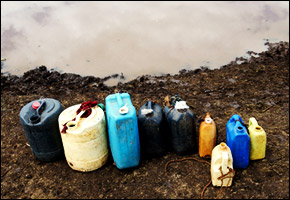The Stream, September 2: U.S. Insurers Slow to Recognize Climate Change Threat
Only 11 out of 88 major U.S. insurers surveyed recently have formal policies in place to deal with growing climate change risks, according to a new report by the non-profit network Ceres.
China is in the process of building more than 50 new nuclear plants by 2020 based on unsafe 60’s era Westinghouse technology that can be built cheaply and quickly, and with the majority of the parts sourced from Chinese manufacturers, Grist reported citing leaked cables from the U.S. Embassy in Beijing.
During the first half of 2011, Germany for the first time generated more than 20 percent of its electricity from renewable sources, Yale Environment 360 reported.
In a bid to reduce its greenhouse emissions, a consortium of companies in Australia is taking action to develop a commercial aviation biofuel out of eucalyptus trees, Sydney Morning Herald reported. But given eucalyptus trees’ water-guzzling record, is this actually a good idea?
Libya’s capital Tripoli has enough fuel for the short term and will get more food deliveries, but the city is struggling with a desperate water shortage, Reuters said, citing a crisis report from the European Union’s humanitarian office.
Grist reports on Hurricane Irene’s damage to U.S. agriculture.
The Stream is a daily digest spotting global water trends. To get more water news, follow Circle of Blue on Twitter and sign up for our newsletter.
, a Bulgaria native, is a Chicago-based reporter for Circle of Blue. She co-writes The Stream, a daily digest of international water news trends.
Interests: Europe, China, Environmental Policy, International Security.







Leave a Reply
Want to join the discussion?Feel free to contribute!